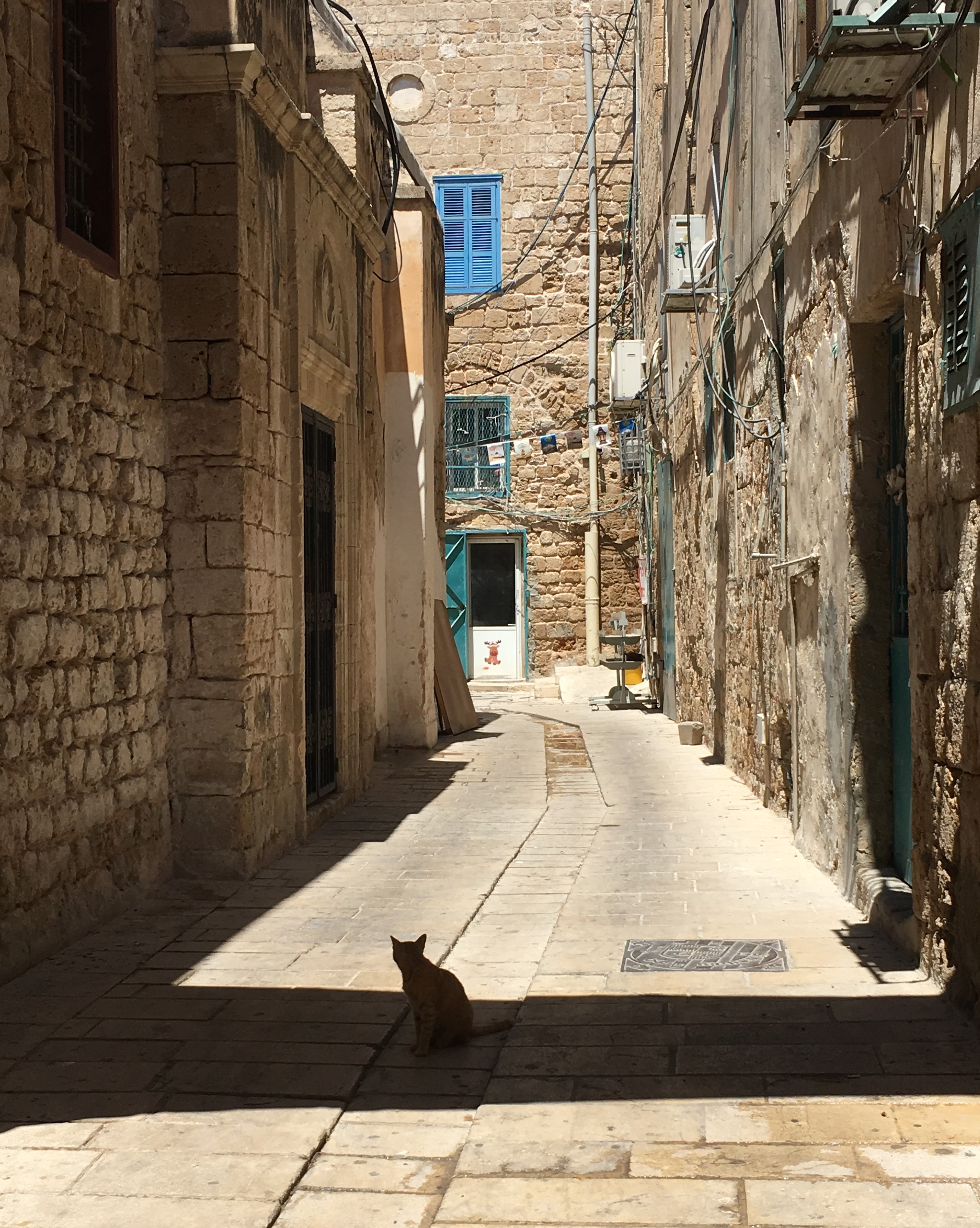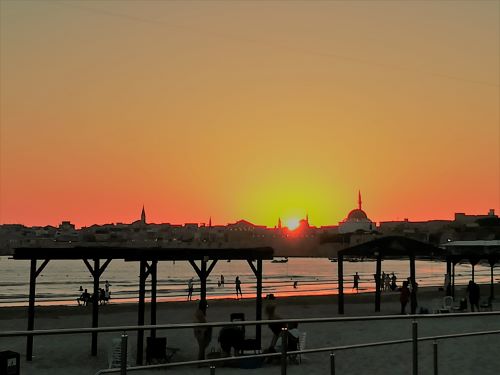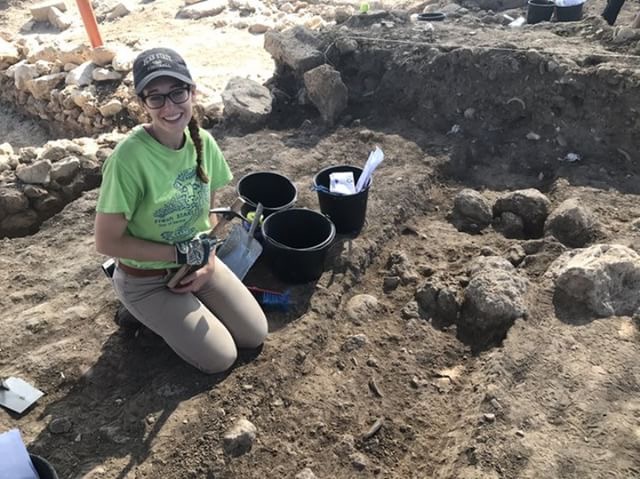The ‘Art’cheology of Care
It’s easy to get caught up in the dirt storm, both literally and figuratively, of an archaeological dig. You must take caution in not knocking rocks out of place or stepping on pottery. There seems to be a zone sometimes you get into during digging. Maybe it’s the repetition, or just the excitement of finding a cool looking pottery piece or a rock. In digs sometimes, there can be a lack of care for yourself, especially in extreme situations. In hot weather, there are dangers, like not drinking enough water. At this dig at Tel Akko, you can commonly hear people yelling to drink water, or have someone use that parent voice of disappointment when they hear you haven’t drunk any water in the last twenty minutes. You can stretch your legs, drink water and enjoy the wind that finally comes in. That, however, is only one part of what makes a human body work, the physical part. There is also our mental health with goes hand in hand with physical health. Each person on the dig adds their own spin on taking care of themselves before and after the dig. This is mine and a few others’ first dig, so I asked a few friends how they take care of themselves during the month.
- Naps- Upon first arrival in Israel, many got hit with jet lag. Later during the trip, we were all hit with the tiredness from digging early in the morning. Naps are one of the most common things done here and are commonly mentioned. It is the one thing that can halt a well-planned outing in its track. One person mentioned that they take a nap in the afternoon, after lunch as they wouldn’t be able to pay attention in lecture otherwise. Digging is demanding work and rest is always well appreciated, although naps may not be for everyone; for another friend, a nap leaves them feeling off.
- Change of scenery- Dig. Lunch. Pottery. Lesson. Dinner. Sleep and repeat. Day in and out, it can be the same. Same square, same food, same good old dirt in your mouth. Yummy. Just getting out of the building and into Old City or the beach, or one of the other options nearby, can keep you from pulling out your hair. Even if it’s just spending time with friends, which you will be able to make on this trip. Or adopted into a group of already made friends. There are also other options that relate to the dig you can try. You can try other courses other then what you wrote on the paper officially. Want to take photos? Study bones? Dig through small piles of pieces? You can! I recommend bones. You can learn so much from what remains, also they look cool.
- Be by yourself- You end up spending time with the same people day in and day out; rooming with others, digging with them, and eating with them. Sometimes it’s great to just sit by yourself and listen to music, play some video games, or just zone out. Your mental health is as important as physical health, even if it doesn’t seem mentioned enough.
- Take a break- It’s okay to want to do a half day or miss a day of digging and wash pottery. In fact, washing pottery is highly encouraged. Taking a step back from the toll of digging is fine and recommended. Don’t feel well the day before? Take a break. Wake up feeling awful? Take a half day, come back after second breakfast or even stay back, wash pottery, or help in the other labs. There are many options, and you never feel like you are just sitting around. Taking a break isn’t looked down upon here, and your mind and body will thank you even from a small break. Do what you can, not what you think you should be doing.
- Enjoy the small things- A simple shower and clean clothes after the dig can change your mood for the entire day. Or having a drink that you love, like chocolate milk. Maybe some music or video games with friends during break. Watching cats nap on the walls around the city or scurry around the streets. Love the small things in life that make you happy.
We’re human, and this dig really shows that. People here get excited talking about what they love, no matter if it’s mosaics or animals. You learn quickly who’s voice is whose; hearing them call out reminders for water, cheering at the find of the day, or just talking to them in general. Everyone looks out for each other, making sure that they aren’t overdoing themselves or feeling alone. Little reminders to drink water or even a small “Hey, how are you doing?” at the sifters, are just small things that keep a welcoming feeling around the site. Always take care of yourself, as you are the greatest find anywhere.



